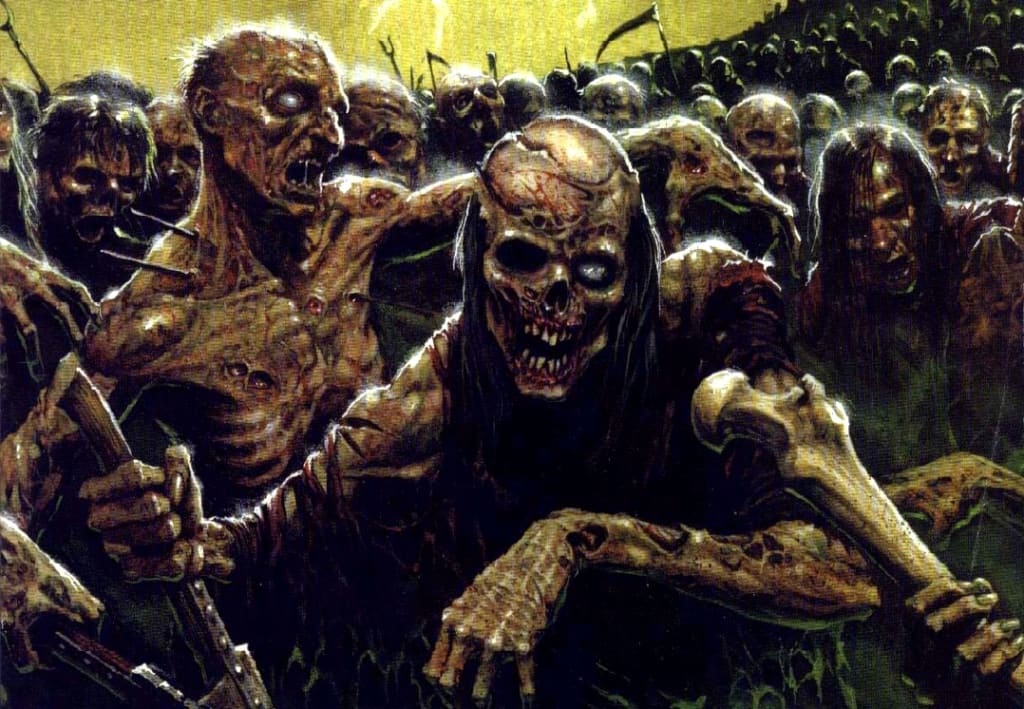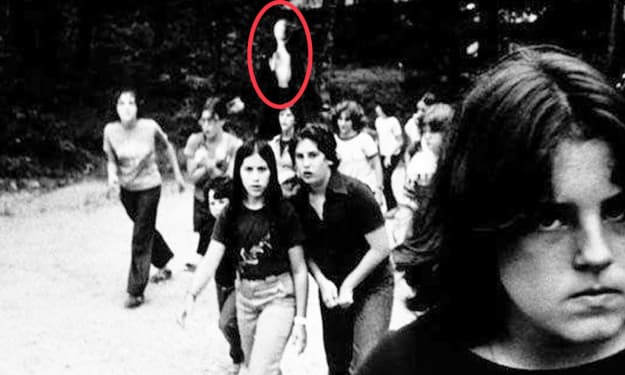
Zombies. The Undead. Walkers. The cannibalistic risen dead go by many names, the most common derived from the Haitian word "zombi."
They have been imbedded in our culture since the Night of the Living Dead (1968), when the shambling undead made their way across the silver screen. Their blank eyes, their unending appetite for the living—not just their brains, mind you—but their flesh as a whole. While their appearances can range from the rotting corpses that are barely held together, to the fully intact bodies that are almost indiscernible from the regular day to day humans, they all have one thing in common; they are brain dead cannibalistic pseudo-humans bent on devouring the world. But where did these voracious creatures come from?
The idea of Zombies originated in Haiti and voodoo. Zombies are indeed the reanimated dead in Haiti, but they are not the bloodthirsty ones that are shown in shows like The Walking Dead. Instead, they are mindless slaves, basically. Incredibly passive, and easily susceptible to suggestion. They could be told to do anything, from completing mundane tasks, or much more popular, killing the enemy of the one who brought them back to life. This could be the beginning of the bloodthirsty creatures that they called, Zombis. The origin of the zombie is very different from the pop culture one that media has obsessed over for a very long time.
Of course, there are different kinds of zombies. You have the slow original zombies from Night of the Living Dead, the fast and aggressive zombies from World War Z, the Walkers from The Walking Dead, and many other iterations of them. The lore behind each of these different kinds of zombies is as varied as they are. There’s the “T-Virus” of the Resident Evil series, the failed cure for cancer that is shown in I Am Legend, a pulse given through cell phones in Steven King’s book Cell. Even though their abilities are as varied as humanity itself, they all have one insatiable need. Hunger.
Now, tying into the magic and the fantastical nature of zombies is our own bodies' ability that is suppressed by our brain. In fact, if our brain was not stopping our jaw, which has a pressure power of 171 pounds (Scientific American), we could seriously injure ourselves. However, it would take a pressure power of over 200 pounds to "bite off your finger like a carrot," which is something that I've seen on forums.
The possible physical capacity of our own bodies, including the recorded instances of cannibalism, which, the average human body only contains about 110,000 calories, which would not feed a large group of humans, suggesting that some of the ancient tribes were cannibalistic by choice, and not for the caloric payoff, but maybe because of religion, or to make a point to captured prisoners. However, this is not known beyond conjecture.
But why have we been so fascinated with this subject? Is it because we are afraid of our own afterlife? Is it because we need to explain the how and why of cannibalism? Or is it more to see how humans act in a time period when we are no longer the top predator (which can be debated), and to see what the human condition really is. Are we inherently evil, as said by Thomas Hobbes? Or do we have morals that are unable to be damaged, as proposed by Jean-Jacques Rousseau?
I believe that it is partially to discover our own morals and how we would act, and also a fascination with how the world will end. If you look at TV shows and movies, i.e. 2012, we are constantly theorizing in what way the world will end. Zombies are but one of those apocalyptic theories.
About the Creator
Megan Burton
Horror junkie, urban legend enthusiast, lifetime learner






Comments
There are no comments for this story
Be the first to respond and start the conversation.